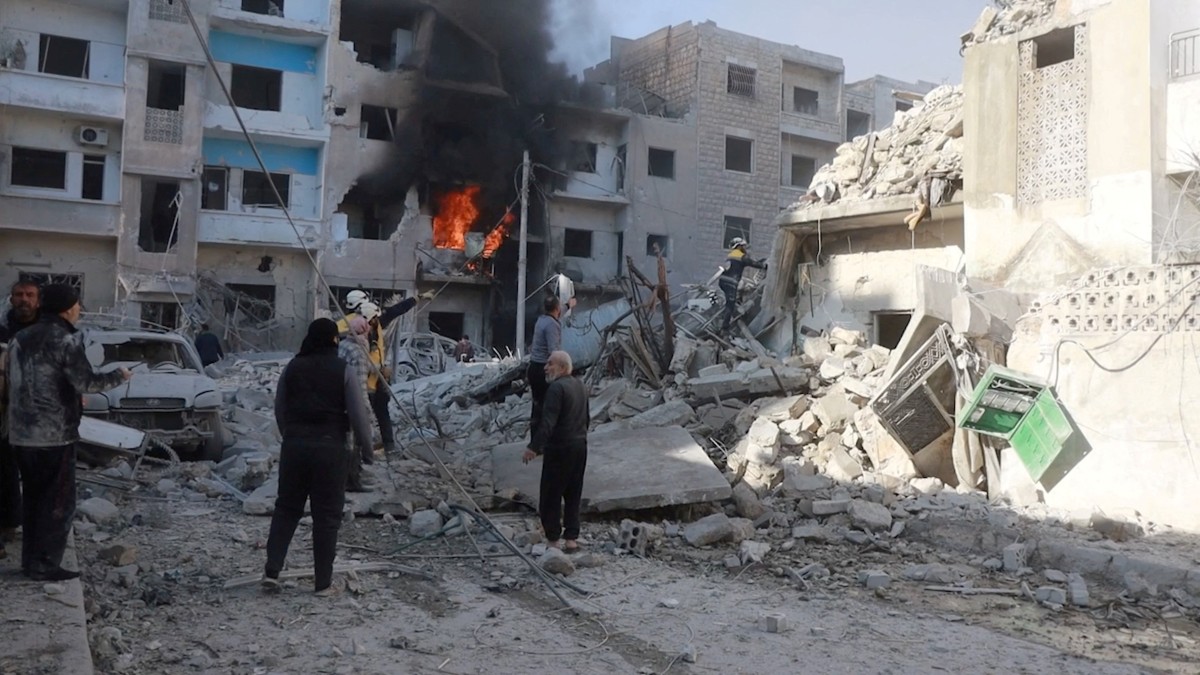Syria’s long civil war has reclaimed global attention after insurgents seized most of Aleppo and dozens of nearby towns and villages.
Experts think that Turkey, which influences the large coalition of rebel fighters that are occupying the country’s second-largest city, may benefit greatly from the current Syrian crisis.
It presents an opportunity for the country to deal with the Syrian refugee crisis and the Kurdish threat along its border.
Although Syrian President Bashar al-Assad rejected Turkish President Recep Tayyip Erdogan’s offer of assistance, Ankara now seems to play a bigger influence in decisions that could impact Syria’s immediate future.
Let’s take a closer look.
Turkey’s role in the new rebel offensive
Turkey has a “complex and difficult relationship” with Hayat Tahrir al-Sham (HTS) , the jihadist group that launched the rebel attack last week , according to Omer Ozkizilcik, an associate researcher for the Atlantic Council in Ankara.
The group long served as Al-Qaeda’s branch in Syria and was considered a terrorist group by the UN and other countries, including the US.
“We can clearly say there was indirect Turkish support (for the offensive) but no direct Turkish involvement,” he told AFP.
He claimed that although the attack was due to take place “seven weeks ago… Turkey stopped the rebels from launching this military offensive.”
Russia, the ally of Assad, has also been “heavily” bombing rebel positions in the northwest to prevent an attack on his administration.
Middle East Institute analyst Charles Lister agreed, stating that “the Aleppo offensive was initially planned for mid-October but Turkey put a stop to it.”
According to Ozkizilcik, Turkey only approved the move after Ankara’s attempts to promote a political solution and normalise relations with the Assad regime were rejected.
Its relationship with HTS
Turkey has exerted pressure on HTS to renounce its Al-Qaeda ties and has resisted the extremist Islamist group’s attempts to expand into the “security zone” it has established for itself in northwest Syria.
According to analysts, it has also pressed to refrain from attacking Druze and the Christian minorities.
“The HTS of today is not what it was in 2020,” Ozkizilcik said.
Firas Kontar, a Syrian opposition activist of Druze descent and author of Syria, the Impossible Revolution, feels Erdogan “no longer has the means to stop HTS,” despite Turkey’s influence over the group.
Ties between Damascus and Ankara
When the war broke out in 2011, Ankara and Damascus severed their relations, with Erdogan criticising Assad as a “murderer” and supporting the rebels.
Nonetheless, the Turkish leader has been pursuing reconciliation since late 2022, declaring in July that he was prepared to host Assad “at any time.”
However, Assad stated that a meeting would only take place if Turkish troops left Syria.
There are already 3.2 million Syrian refugees living in Turkey, and their presence has become a significant local hot potato. Ankara hopes that a rapprochement will open the door for their repatriation.
“Now with the changing situation on the ground, the balance of power in Syria has shifted: Turkey is the most powerful actor at the moment inside Syria, and Iran and Russia will likely try to negotiate with Turkey,” Ozkizilcik said.
Turkey’s presence in Syria
Turkey has established a foothold in areas that border its frontier by conducting many operations against Kurdish troops in northern Syria since 2016.
The purpose is to drive out Kurdish fighters from the border area, particularly the YPG (People’s Protection Units), which Washington supports as a defence against jihadists from the Islamic State organisation.
However, Ankara sees the YPG as an extension of the PKK, which has waged an insurgency within Turkey for decades and is prohibited by Washington and Brussels as a terror organisation.
The Syrian Kurdish movements
On Sunday, pro-Turkey rebels took control of Tal Rifaat, a town north of Aleppo, and the other villages where over 200,000 Syrian Kurds resided, according to the UK-based Syrian Observatory for Human Rights.
Kurdish residents of Tal Rifaat, which is located just outside of Turkey’s “security zone,” have fled to a safer region further east as a result of the move.
According to Turkey’s secret agency, a PKK leader was killed nearby.
“Turkey has already made and probably will make many gains against the YPG terror group to secure its national security,” said Ozkizilcik.
With inputs from AFP
)